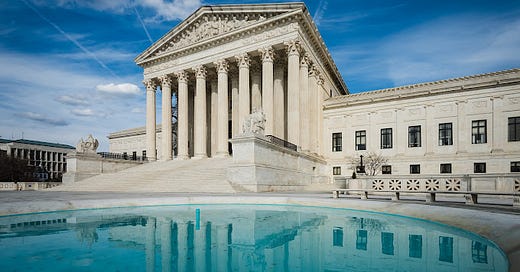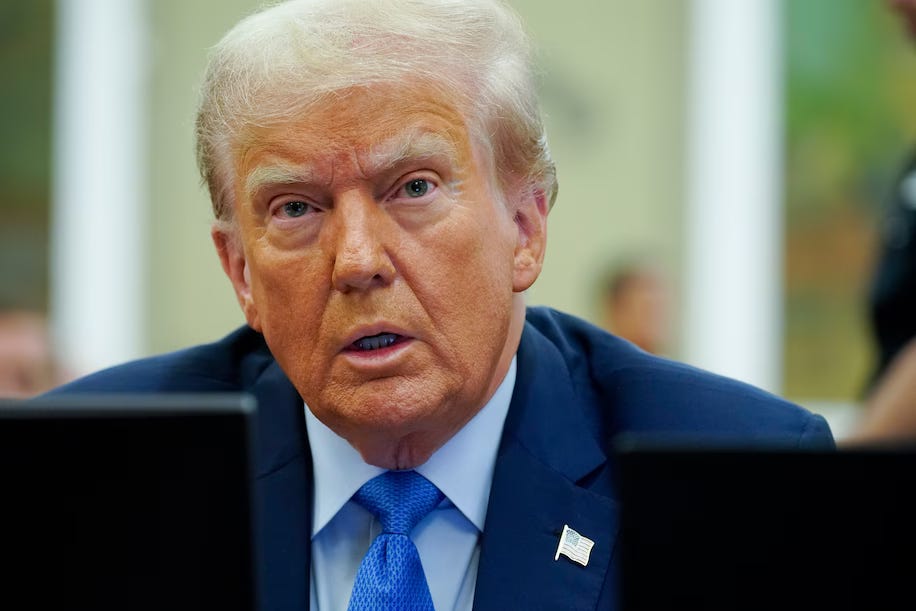US Supreme Court to Consider Trump's Plea on Presidential Immunity
Supreme Court's Decisive Moment in Election Interference Case.
A High-Stakes Legal Battle
The United States Supreme Court on Wednesday (February 28) took upon the monumental task of determining the prosecutability of former President Donald Trump over allegations of election interference in the 2020 Presidential Election. This decision comes amid a rapidly approaching deadline, as the nation's eyes turn towards the possibility of Donald Trump’s criminal trial before the upcoming November elections. The Supreme Court's intervention highlights the profound implications of this case, not only for Trump but also for the precedent it sets regarding presidential immunity and accountability.
Expedited Proceedings for an Unprecedented Case
The Supreme Court's decision to fast-track the hearing process, with arguments scheduled for late April and a ruling expected by June's end, underscores the urgency and significance of this case. This expedited timeline is a departure from the Court's usual pace, indicating the Justices' awareness of the case's impact on the forthcoming elections and the broader political landscape. The Court's swift action recalls historical precedents such as the Watergate tapes case and Bush v. Gore, where rapid decisions were crucial.
The Core Legal Question: Presidential Immunity
At the heart of the Supreme Court's deliberation is the question of whether a former President can claim immunity from criminal prosecution for actions that were allegedly part of official duties. Trump's legal team argues for extending civil liability immunity, historically granted to sitting presidents, to encompass criminal prosecution post-tenure. This contention has sparked a legal debate, with lower courts so far rejecting the notion of absolute immunity for former Presidents.
Political Ramifications and Public Interest
The timing of the trial, if allowed to proceed, carries significant political and public interest implications. With Trump's legal team seeking delays and the prosecution pushing for a swift resolution, the outcome could influence Trump's campaign capabilities against President Biden in the upcoming election. The prosecution underscores the "unique national importance" of a timely and fair verdict, hinting at the potential for the trial to impact public perception and electoral dynamics.
Broader Implications for the 2020 Election Aftermath
The Supreme Court's involvement in this case is part of a broader judicial examination of Trump's actions following the 2020 election loss, including the separate but related question of his eligibility to run for Presidency again, where the core issue is the applicability of the Civil War era 14th Amendment. Additionally, the Court is set to hear an appeal related to the Capitol riot, potentially affecting charges against numerous defendants. These cases collectively highlight the ongoing legal and political fallout from the 2020 election and the January 6 Capitol insurrection.
A Critical Moment for American Democracy
As the Supreme Court navigates these unprecedented legal waters, the implications extend beyond the immediate parties involved. This case tests the boundaries of Presidential accountability, the separation of powers, and the resilience of American democratic institutions. The outcome will not only shape the legal landscape for former Presidents but also set a precedent for the conduct of high office holders and the rule of law in the United States.
Summing Up
The Supreme Court's decision to hear the Trump election interference case represents a pivotal moment in American jurisprudence and democracy. As the Nation awaits a hearing and thereafter a ruling, the questions of Presidential immunity, accountability, and the integrity of the electoral process remain at the forefront of public discourse. The Court's forthcoming decision promises to be a landmark in the ongoing effort to define the contours of power and justice in the American political system, even as Donald Trump remains the front-runner Republican candidate by miles.






